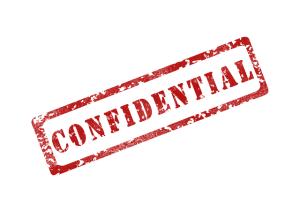/waves at the NSA
When I was in line at Starbucks today, there was a woman behind me on her cell phone, having a very interesting conversation.
“He got caught because he was talking with someone online, and it turned out to be a cop. I need to go talk to the sex therapist.”
Now, discreetly eavesdropping on conversations is something that writers do. But I didn’t even have to eavesdrop in this case; in fact, I couldn’t have avoided overhearing the conversation if I wanted to. And since the line was long and slow, I heard a lot. Apparently this woman is either a lawyer or a lawyer-to-soon-be, and has been working with both prosecutors and defense attorneys, and hopes that will help her get a job as a prosecutor, because she “knows how the other side thinks.” She ended the conversation when she was a couple people from the register (good for her, I hate it when people try to hold a conversation on their cell while ordering coffee, it is rude to everyone involved) by saying “I love you,” so…a significant other? Maybe a parent? Someone she felt comfortable sharing sensitive details of a sex offender case with.
You know…them and random strangers in line with her at Starbucks.
Is it possible she was playing around? Having a fake conversation to see how people react? It’s possible. But she’s hardly the first person I’ve encountered having a “private” conversation in public, and I very much doubt that she will be the last.
Now, I will readily admit that I’ve been guilty of this myself. I’ve had fights on my phone in public. I’ve told my husband about changes in my therapist or psychiatrist appointments. I’ve had conversations with my mother. I find I have to remind myself pretty often that when I am in public, my cell phone conversations are public.
The illusion of privacy is a very common phenomenon, and it makes sense. When you’re on the phone, your attention is on that person (and not on the sidewalk, the barista, the road…), and there’s the assumption that if you’re not paying attention to other people, they’re not paying attention to you. It is the grown-up equivalent of a young child playing hide and seek and “hiding” by holding a pillow up in front of their faces. And that’s hardly limited to cell phone conversations. People think their cars are private spaces, and somehow forget that they are surrounded by glass. And if you open up an incognito window on Chrome, it puts up a note of caution that an incognito window does not protect you from people standing behind you. If you are looking at pictures of naked people and your co-worker or your parent or your spouse walks by, the program will not do a jedi mind trick, wave its hand and say “This is not the porn you’re looking for.”
It is so easy to forget all these things when the threat to our privacy is obvious and immediate. How much harder is it for any of us to remember that our privacy is an illusion even when we’re not having a “private” phone conversation in the middle of a Starbucks? There are some ways to encrypt our emails, our browsing data, but how many of us actually feel it’s necessary? We know that the NSA is listening in on our cell phone activity, and yet people still send each other sexts or pictures of themselves naked. We think we can be anonymous while posting on forums online, but with a little digging, people can uncover your location, even your identity. And try threatening a president and the FBI will be knocking on your door so fast your head will spin.
That’s one of the biggest, and most insidious, results of our rapidly expanding electronic globalization. I think all of us could use a sticker on our phones and our monitors that read “NOTHING YOU SAY IS PRIVATE”
Now, excuse me while I call my friend in Afghanistan and do a web search for “How to cook meth.” Hey there, NSA!





